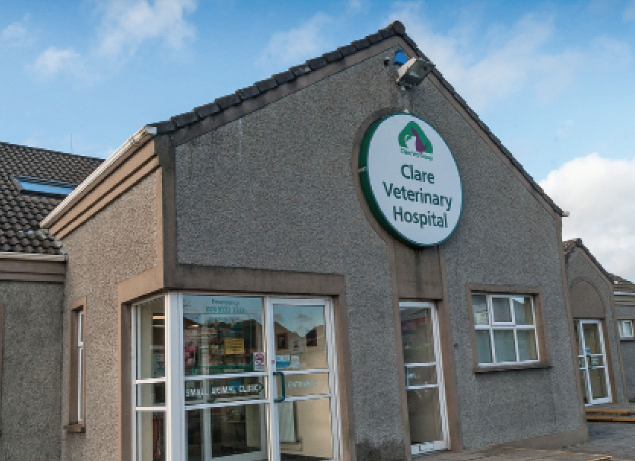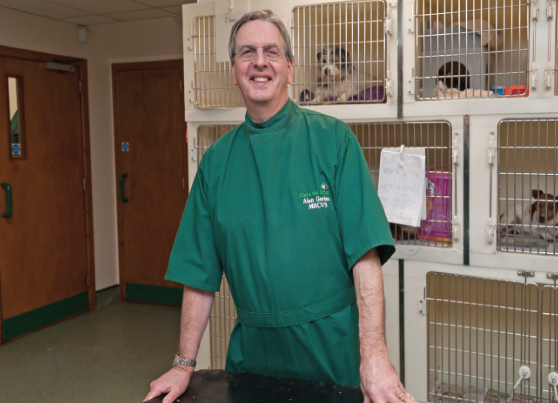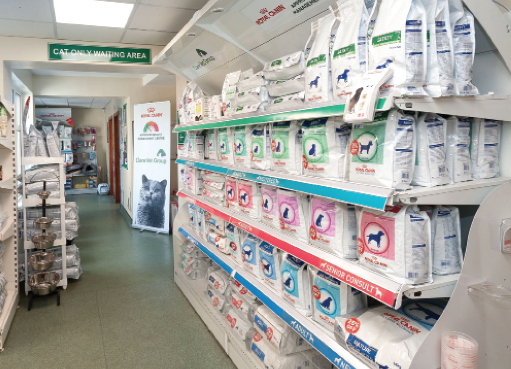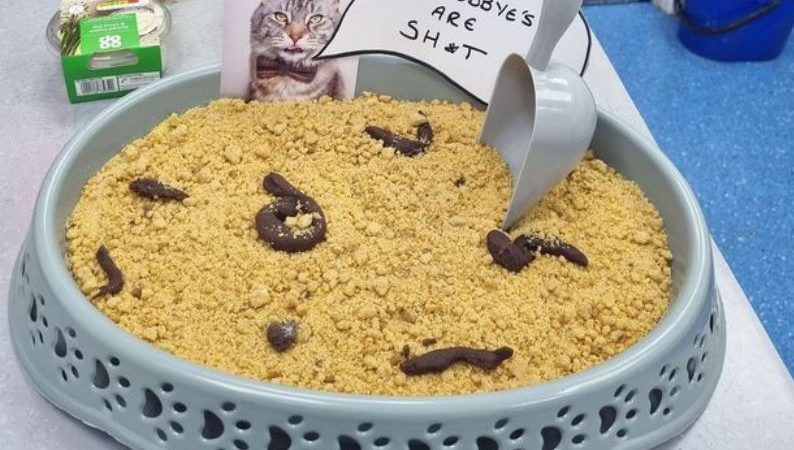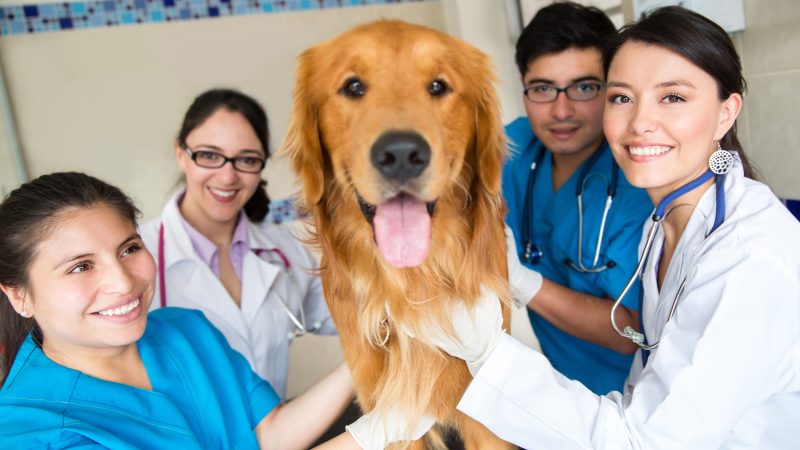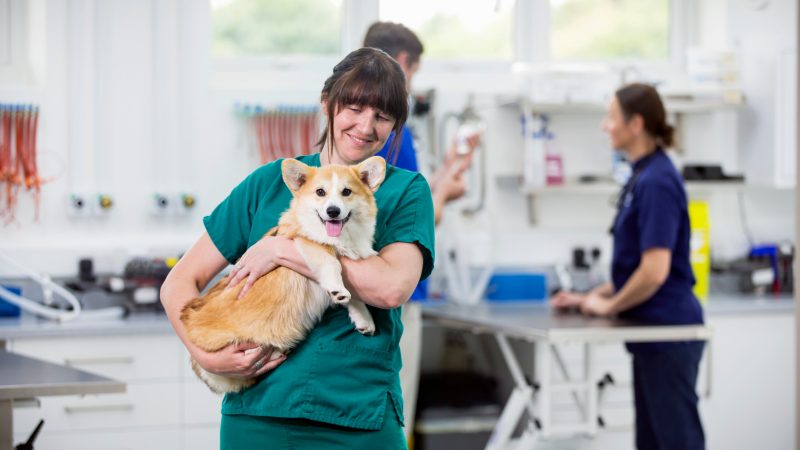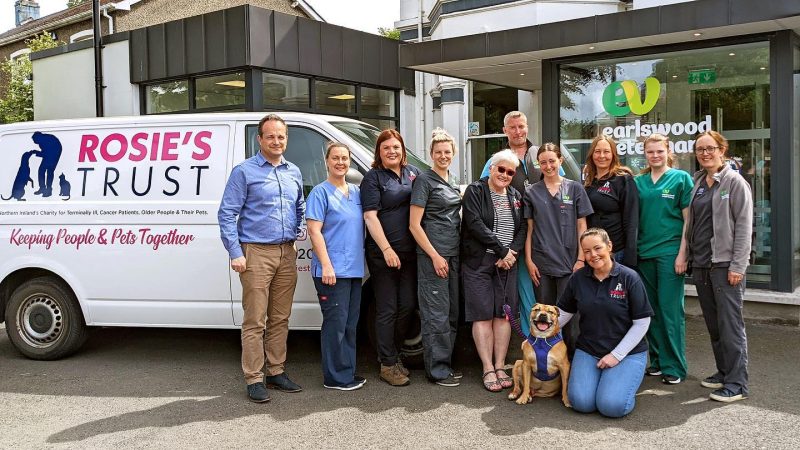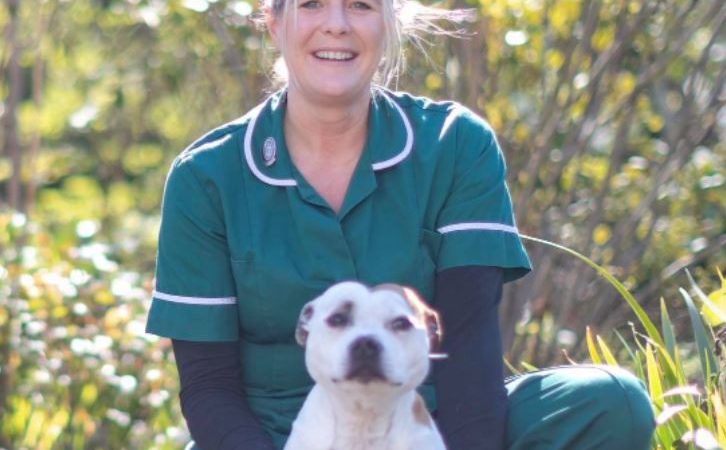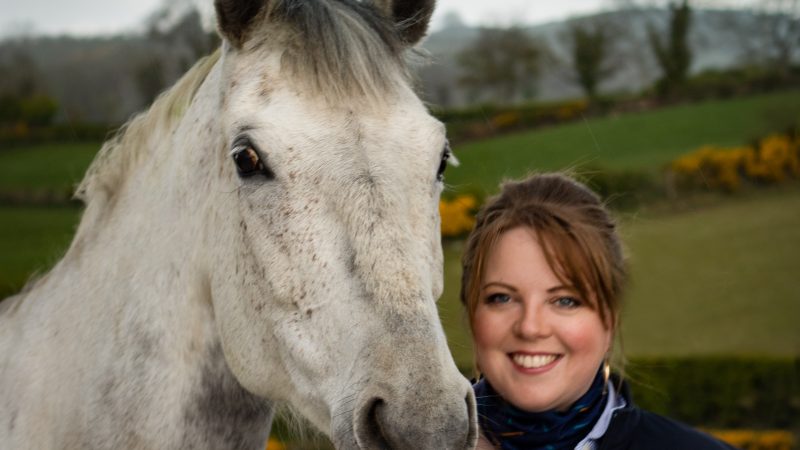The best of both worlds…
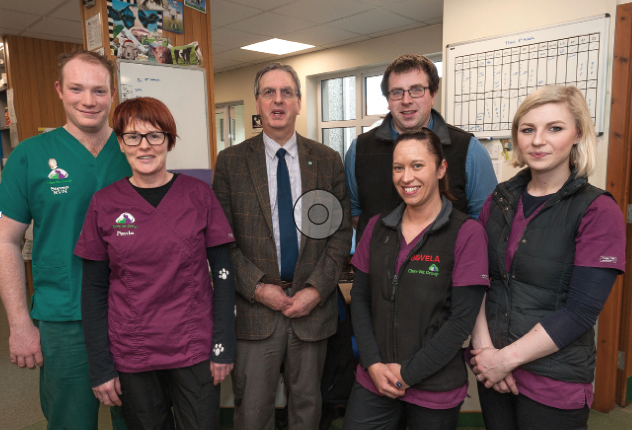
One of the most familiar – and amiable – figures in local veterinary circles these days is Alan Gordon, newly-elected president of the NIVA and co-founder, along with Wilson Kennedy, of the burgeoning Clare Veterinary Group.
At 62, Alan Gordon has more than 40 years in local veterinary practice to his credit and while he’s no longer a director at the thriving Clare Veterinary Group, he and co-founder, Wilson Kennedy are retained as consultants. For Alan, that’s not meant any lessening of the pace. He is still regularly to be found at the heart of clinical practice, putting in a 42-hour week and undertaking all but the most complex of surgeries.
“Wilson and I sat down and decided to do things this way many years ago, and I think it’s worked” says Alan. “We now have six directors in the practice and Wilson and I are still able to be here and to keep working.”
It lets him have the best of both worlds, he says:
“I think that when you get to 60, you need to let people who are younger and more enthusiastic come in. But if you wait until you’re 60 to take that decision, the chances are, you won’t want to go and then the business can end up dying. You need young blood and fresh input all the time in a practice.”
There are now 16 vets and more than 50 staff in the group, ranging across its impressive hospital facilities at Ballyclare and satellite practices in Whiteabbey, Cavehill and Carrickfergus.
Plans are currently being laid for a new purpose-built area at Ballyclare dedicated to the hospitalisation of cats. That will represent an investment of around £50,000 for the practice and Alan hopes to see the work finished by the end of the year.
“Going forward, we are very happy with our place in Carrick, the practice in Whiteabbey has had a recent facelift and it is doing well for us, although there is now a lot of new competition there,” he continues. “Our main concern at present would be the Cavehill branch which is much too small for the level of business that it has, so we need to do something there.”
Alan has been at Ballyclare since the very early 80s – first as a partner with Wilson in Jim Sherrard’s vet practice – and later, as founders of the Clare group which they established at Ballynure Road in the town in 1994.
He retired as partner and director in 2016, but along with his continuing work in the practice, he maintains a special interest in small animal dentistry and dairy cattle fertility. He is very involved with the mentoring of new assistants and school pupils keen to pursue a veterinary career. And he’s a keen advocate of stronger links with the local community and often gives talks to interested groups in the small animal and farm sectors.
Alan’s recent appointment as president of the North of Ireland Veterinary Association (NIVA) recognises his passion for cultivating relationships and improving communication within local veterinary circles, but he does admit to some mixed feelings over the new role, coming as it does soon after the sudden death in post of his predecessor, Jean Wales. Paying tribute to Jean for her “tremendous enthusiasm and knowledge of the EU”, Alan adds:
“Her death left us with a huge hole to fill and now, that’s what we’re doing, trying to fill those gaps and the BVA can help us out with that to an extent, but that will never replace Jean, she was irreplaceable.”
Brexit
Alan’s reference to the EU leads to a discussion of Brexit and inevitably, to its potential impact on a local veterinary sector already struggling to find the talent it needs for many of its most vital roles. It’s a topic about which Alan says he is “hugely concerned”:
“We advertised for an assistant [vet] before Christmas and we had one applicant, a Portuguese girl who didn’t turn up for the interview,” he recalls. “That was that. We re-advertised after Christmas and we now have a wonderful assistant who had several other job offers before she decided to come to us.”
Alan says it’s a story that’s indicative of the changing face of veterinary practice in the UK. Some years ago, he adds, he’d have had his choice of half-a-dozen keen interviewees for the assistant’s post.
But he refuses to yield to undue pessimism over issues such as Brexit. He’s an optimist at heart. He says:
“Brexit is something that we have just got to deal with…and we should look at it positively,” he says. “As far as EU vets are concerned, a lot of them are still going to come here after the dust settles a bit because the jobs will be there for them. And we might also start getting vets from South Africa, Australia and New Zealand again. They had dried up a bit because of the number of EU vets that were coming, so there’s potential there.
“But I’m not unduly concerned about Brexit. I do think that there’s a lot of hype around it, but at the end of the day, you just have to get on and do it.
“And while I don’t think that Brexit is being particularly well handled, inevitably, commerce will take over and a solution will be arrived at one way or the other.”
Corporates
One issue which does elicit a slightly more passionate response, however, is the increasing prevalence in Northern Ireland of the corporate veterinary groups. That’s “a real issue”, says Alan, who feels that their presence in the market is driving the value of veterinary practices up and making it more difficult for younger vets to buy into independent practice.
And he adds:
“The corporates can come along and they may say that they’re wonderful and they’ll do lots of good things. But you can only sell your practice once and once it’s sold, it’s gone and it becomes someone else’s baby.”
As for the Clare Veterinary Group, Alan says it will continue to respond to client demand. In Ballyclare, the practice’s equine facilities are a little under-used, he says, so that’s an area where there is some potential for further development.
And as for his own future, Alan won’t be taking any hasty decisions:
“I do think I’m aware or carrying on too long,” he says. “I will review things when I get to 65. If the practice feels I still have something to offer them, well, I might continue or I might want to stop and let someone younger come in.
“I have been in practice now for 42 years and there are plenty of other things that I could be getting on with,” he adds.
Retirement would certainly give him more time to indulge in his lifelong passion for railway restoration:
“Maybe I’ll take myself off to Whiteabbey and spend my days painting railway carriages,” he says.

